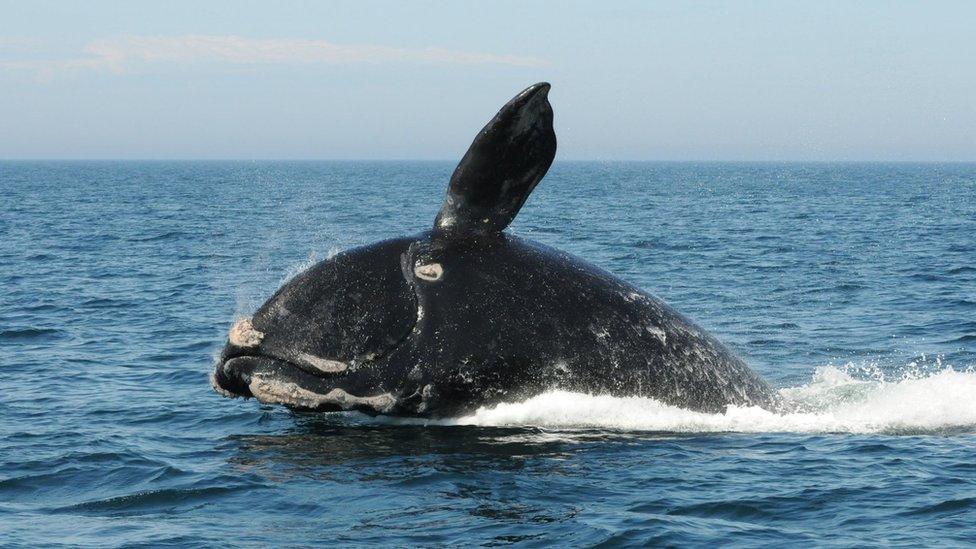WWF: Canada endangered species face 'staggering losses'
- Published

The North Atlantic Right Whale has become more vulnerable to ship strikes, the report says
Canadian wildlife at risk of extinction has undergone "staggering" losses over the past 50 years, the World Wildlife Fund (WWF) conservation group says.
In a report, the charity says that species at risk of global extinction have seen their Canadian populations fall by over 40% between 1970 and 2016.
Populations of species that are at risk of extinction in Canada itself fell even more dramatically - by 59%.
The report said human activity was mostly to blame.
is based on the Living Planet Index, which measures the ecological performance of 883 species around the world, including the North Atlantic Right Whale and the Barren Ground Caribou.
The report found that endangered species were likely to face at least five threats, such as habitat loss, land and shoreline developments and pollution, and that human-activity was mostly to blame.
Climate change and biodiversity loss accelerated the impacts of those threats the animals were already facing, the report said.
"Conservation actions that target only a single threat are unlikely to successfully stop and reverse wildlife declines as threats to species are often cumulative or synergistic and can have cascading effects," the report said.
In the case of the Right Whale, climate change shifted the whale's migratory pattern to more commercial areas where they became vulnerable to ship strikes and more frequently became entangled in shipping gear.
that found that indigenous-managed lands had more species than other parts of Canada, and better supported at-risk wildlife.
The report suggested working with Canada's indigenous people to create more Indigenous Protected and Conserved Areas.
Canada is not alone in this crisis. A recent study found that humans have pushed 500 mammals, birds, reptiles and amphibians to the brink of extinction.
- Published30 October 2018
- Published1 August 2019